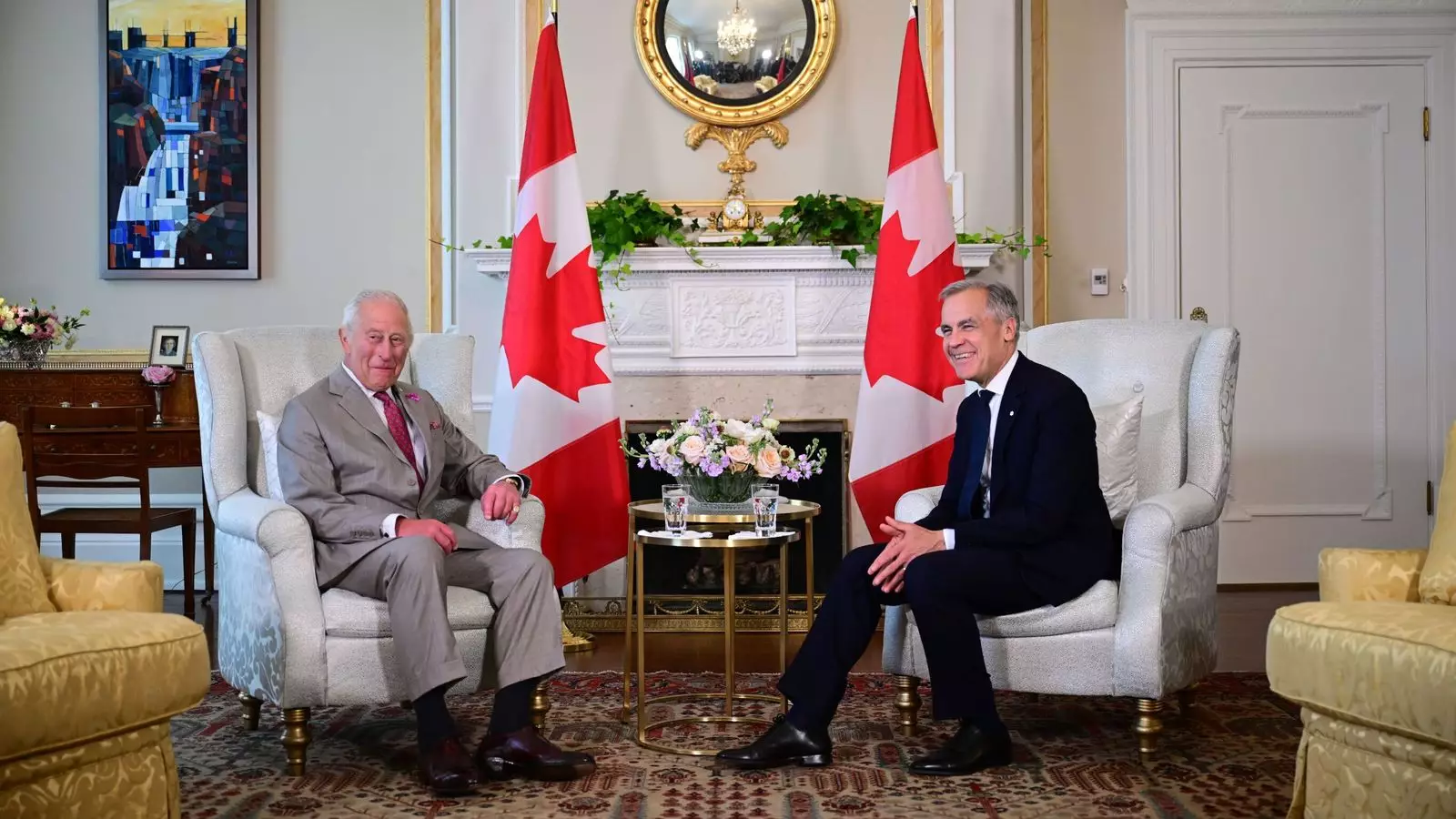The royal visit to Canada by King Charles and Queen Camilla is not just an obligatory engagement for diplomatic pleasing; it bursts with potential as a catalyst for justice, reminding us of the dark specter that looms over our shared history. Campaigners are fervently urging the royal couple to seize this opportunity to formally request an apology from Canada for the catastrophic mistreatment of “Home Children,” a term that conjures heartbreaking images of over a hundred thousand British children shipped off to Canada under the guise of a brighter future.
Between 1869 and 1948, these vulnerable youngsters were torn from their homes, thrust into a system that exploited their fragility for cheap labor. They were not just orphaned; they were marginalized, treated as mere commodities in a society that often viewed them with contempt. This historical wrong demands a courageous acknowledgment, and some believe that King Charles’s visit could be pivotal in rekindling the urgency for reparative justice.
Land of Bright Futures or Silent Tragedies?
While Canada may wear the veneer of a progressive nation—an abode of immigration and freedom—the painful truths buried in its past must be unearthed and confronted. The stark reality is that the Home Children were subjected to gruesome abuses, mere shadows of the idealistic portrayal of Canadian prosperity. John Jefkins, a descendant of one such Home Child, poignantly articulates the necessity of this apology. He astutely notes that healing lies not just in verbal acknowledgment, but in understanding the profound scars that these children and their descendants carry.
To overlook such an apology during this historic visit would be an abrogation of responsibility, an act of cowardice in the face of clarified history. The plight of the Home Children is not simply a relic of the past; it resonates today, binding us to accountability and empathy. To properly address the narratives of the Home Children is to stitch the wound of our collective conscience.
The Royals: Symbols of Change
The monarchy may be viewed as an anachronistic institution, yet it retains the power to influence societal change. King Charles has indicated a desire to grapple with historical injustices, reflecting a stark contrast to the reticence exhibited by Canadian authorities, who have often sidestepped calls for acknowledgment.
The reluctance to apologize is startling given that other nations, such as the UK and Australia, have done so. Their apologies serve as a vital reminder that countries must confront uncomfortable histories, rather than sweep them under the rug of time. King Charles’s elevation as the new Head of the Commonwealth offers a fresh lens through which these issues can be examined, potentially softening resistant attitudes and paving the way for reconciliation.
Potential Impact on Canadian Society
For Canadians, the royal visit isn’t merely a celebration of monarchy; it’s an opportunity to reflect upon the nation’s inception and the unfortunate sacrifices made along the way. The narratives of the Home Children are tied intricately to the very fabric of Canadian society; acknowledging this reality can foster a deeper, more inclusive understanding of our history.
As King Charles prepares to address the Canadian Parliament, the message must resonate beyond polite pleasantries—it should explore reconciliation and remembrance. Allowing the stories of the Home Children to surface could introduce a more compassionate narrative, rekindling the stories of resilience and survival, while pressing for a collective responsibility to ensure such atrocities are never repeated.
A New Dawn for Acknowledgment?
The royal couple’s encounter with Canada can mark the dawn of a newfound courage to confront and rectify the past. While the Canadian government’s previous statements claiming commitment to the Home Children’s memory are commendable, these hollow words need the weight of a genuine action—an apology that renounces past injustices and forms a cornerstone for future reparative efforts.
As we journey through the complexities of history, the past should not serve merely as a memory; it must guide our actions and prompt us towards a future that acknowledges and learns from those who suffered. The royal visit may unfold as a pivotal moment, encouraging authentic dialogue and thoughtful activism. In this light, we see an inherent value—not just for the Home Children and their descendants, but for the unfolding Canadian narrative that seeks to grapple with both triumphs and tragedies.


Leave a Reply